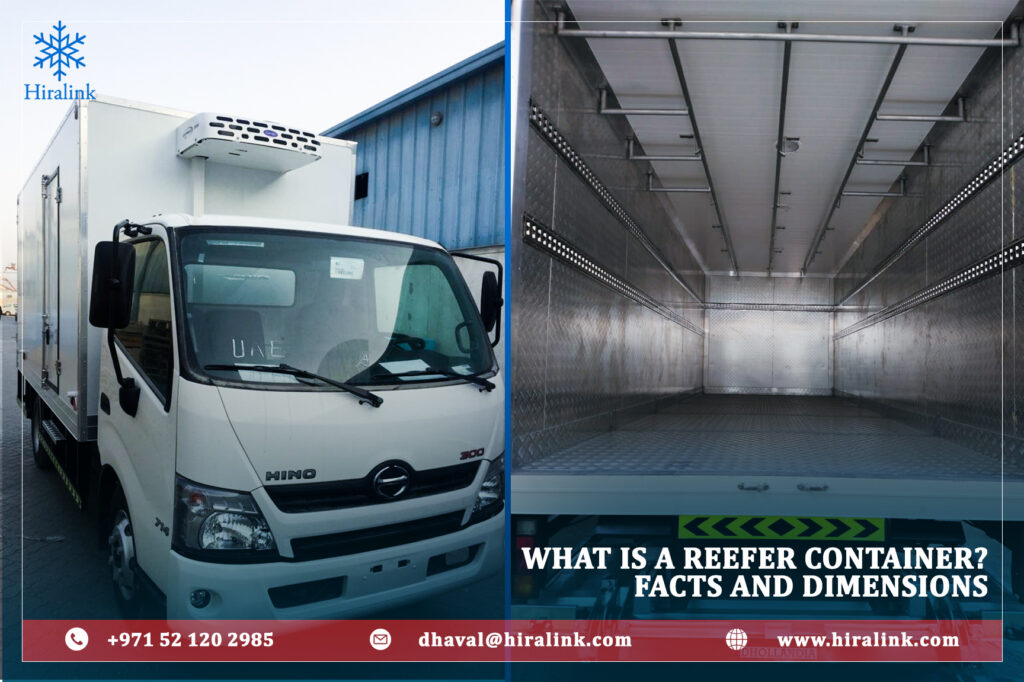A reefer container, also known as a refrigerated shipping container, is a specialized shipping container that is designed to transport temperature-sensitive goods, such as food, pharmaceuticals, and chemicals.
Reefer containers come in different sizes and can be transported by various modes of transportation, such as ships, trains, and trucks. They are commonly used in the global supply chain for perishable goods, such as fresh produce, meat, and dairy products, as well as for the transportation of temperature-sensitive chemicals and pharmaceuticals.
Reefer containers have insulated walls and a built-in refrigeration unit that is capable of maintaining a set temperature range, typically between -30°C to +30°C (-22°F to +86°F), to protect the cargo from spoilage or degradation.
Some Facts And Dimensions Of A Typical Reefer Container
Size
Reefer containers come in different sizes, ranging from 10 feet to 53 feet in length. 20 feet and 40 feet are the most typical sizes.
Capacity
The capacity of a reefer container can vary depending on the size and model but generally ranges from 25 to 67 cubic meters (883 to 2,368 cubic feet).
Temperature range
Reefer containers are capable of maintaining a set temperature range, typically between -30°C to +30°C (-22°F to +86°F).
Power source
Reefer containers have built-in refrigeration units that are powered by either an onboard generator or by being plugged into an external power source.
Insulation
Reefer containers have insulated walls and roofs to help maintain a consistent internal temperature.
Uses
Reefer containers are commonly used to transport perishable goods, such as fresh produce, meat, dairy products, and pharmaceuticals.
Transportation modes
Reefer containers can be transported by various modes of transportation, such as ships, trains, and trucks.
Regulations
Reefer containers must comply with regulations and standards set by the International Organization for Standardization (ISO) and other regulatory bodies to ensure the safety and quality of the transported goods.
The Final Thought:
Overall, reefer containers play a critical role in the global supply chain by enabling the transportation of temperature-sensitive goods across long distances, while maintaining their quality and freshness.


